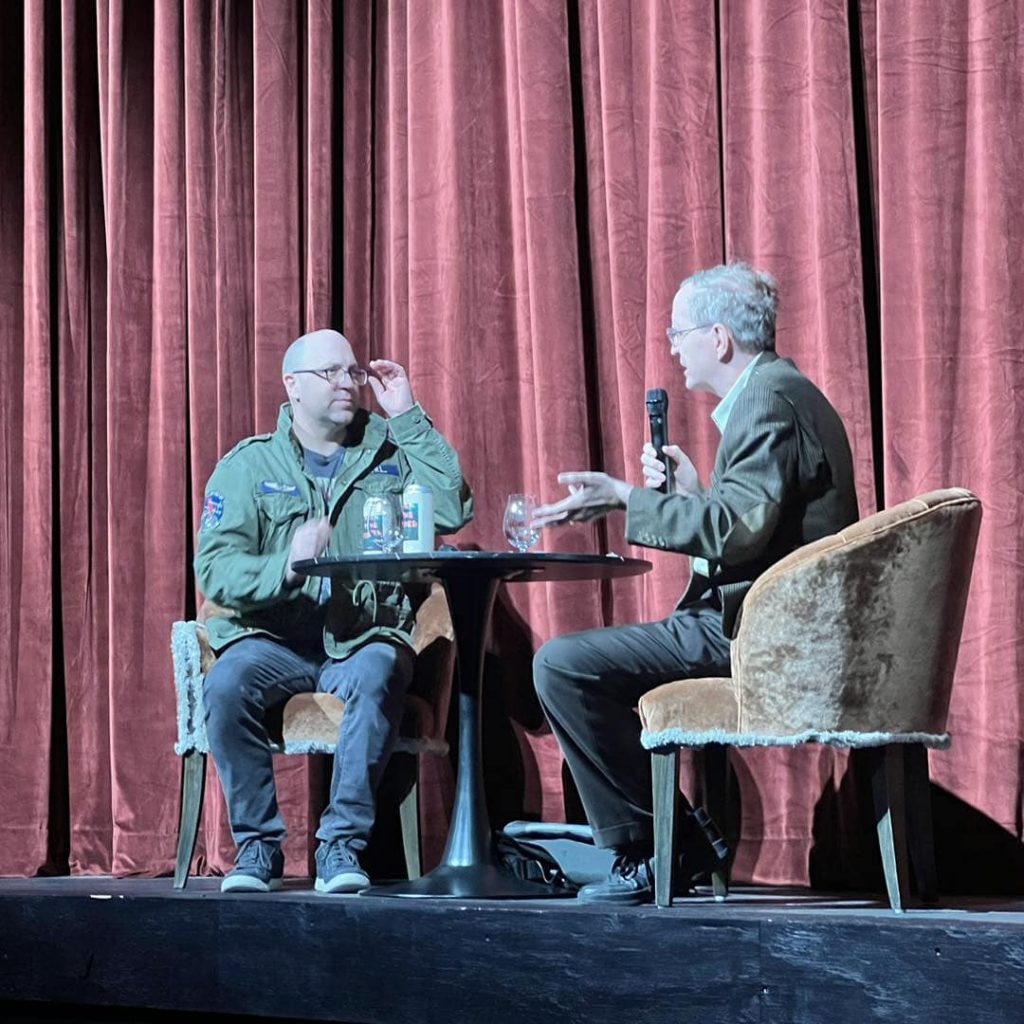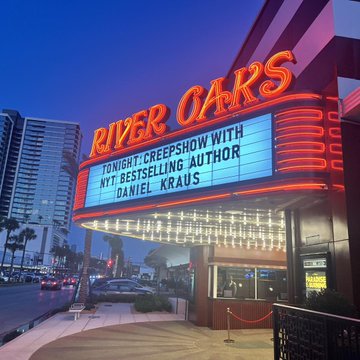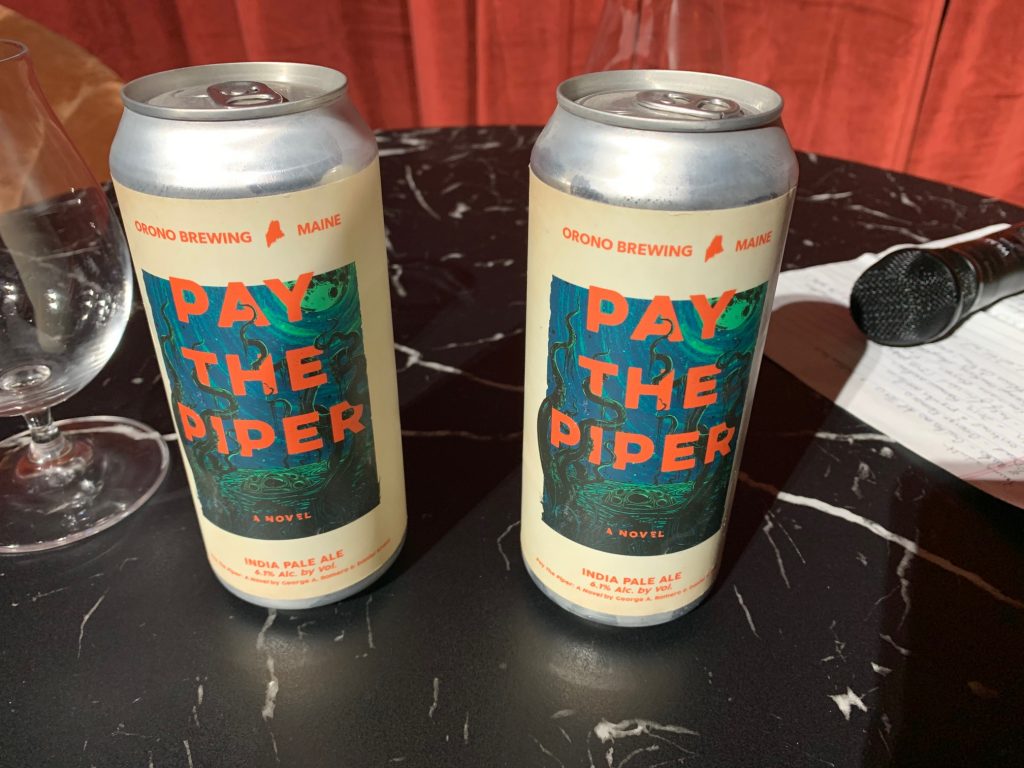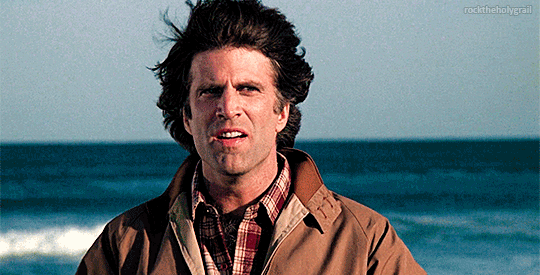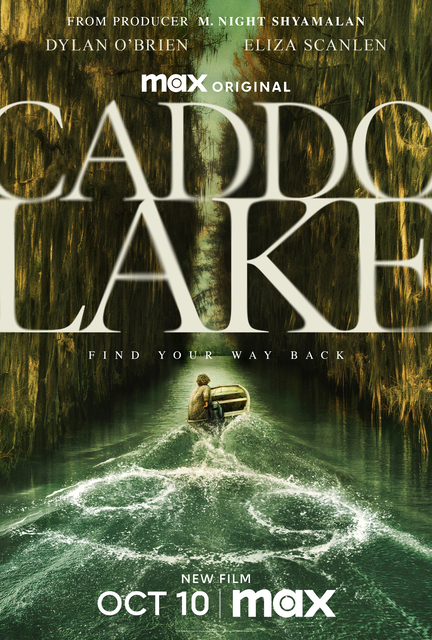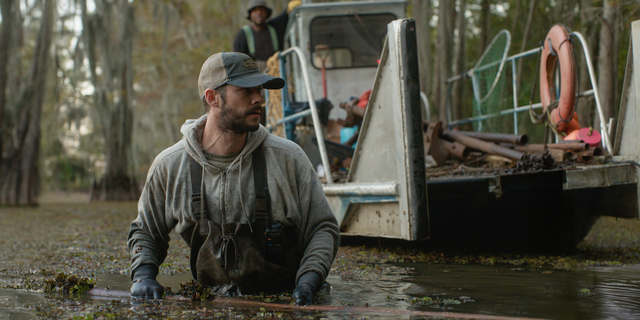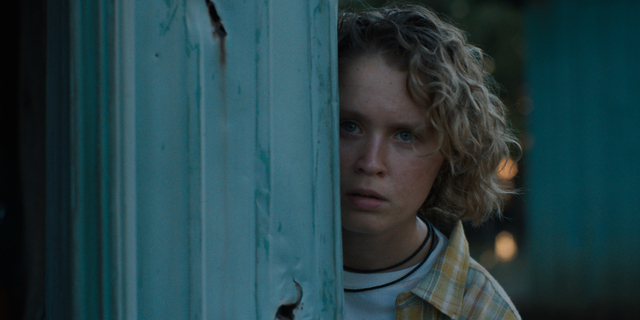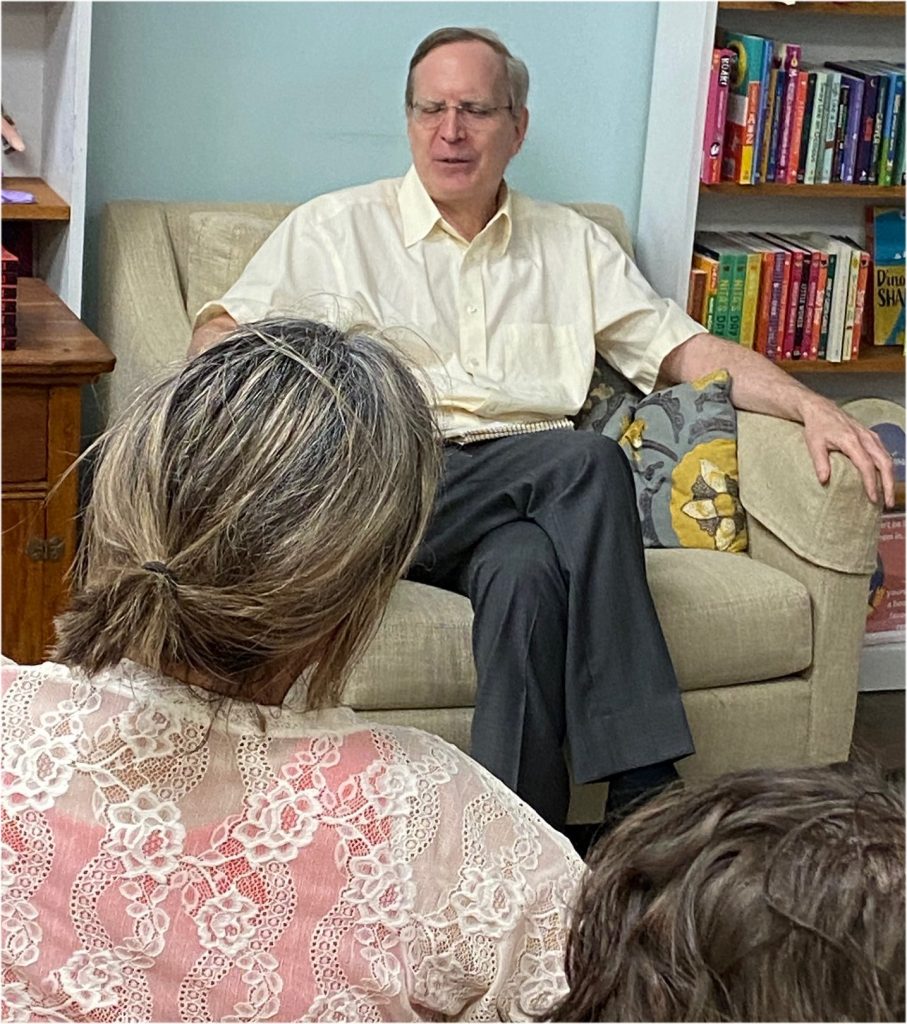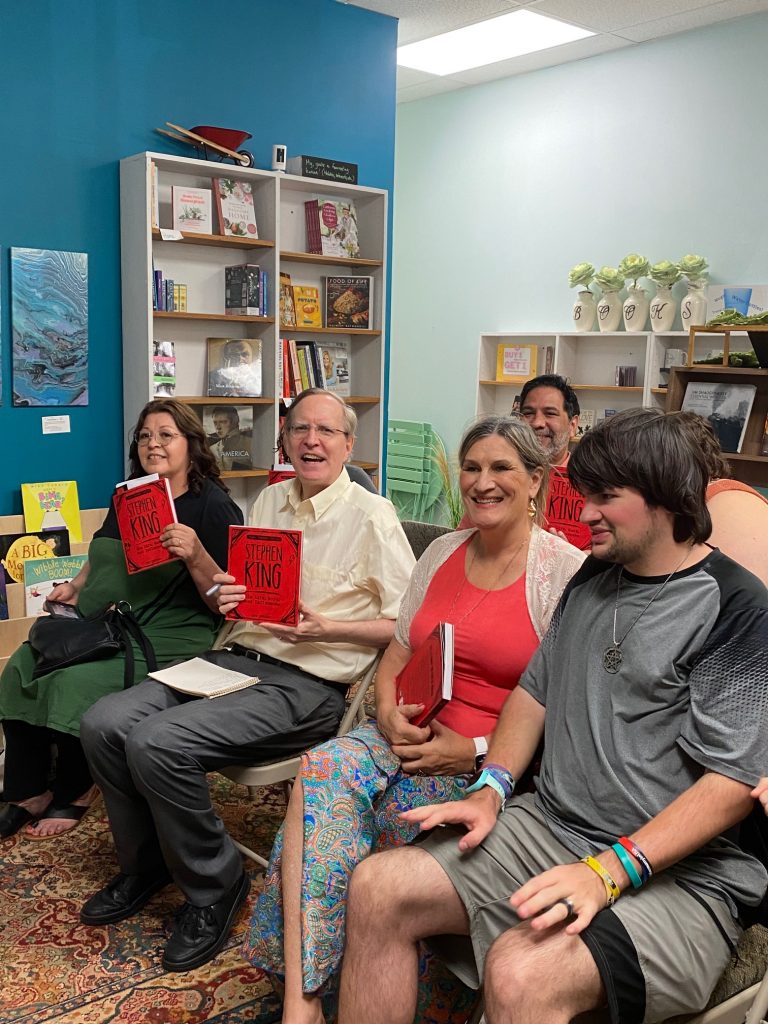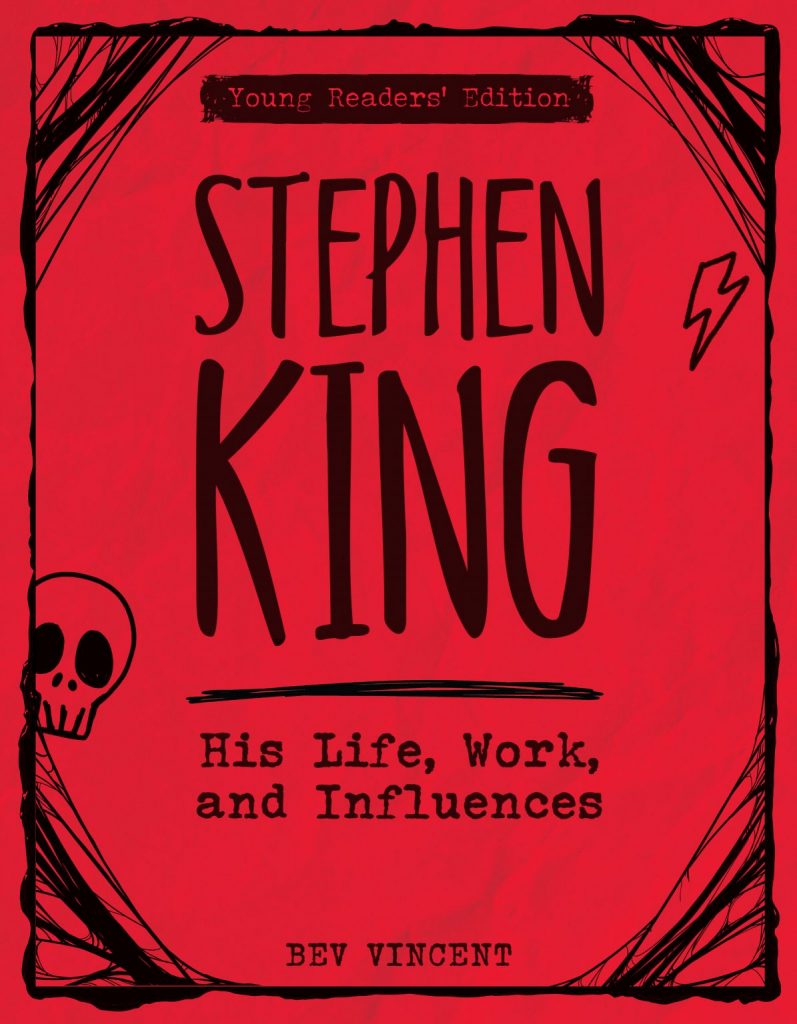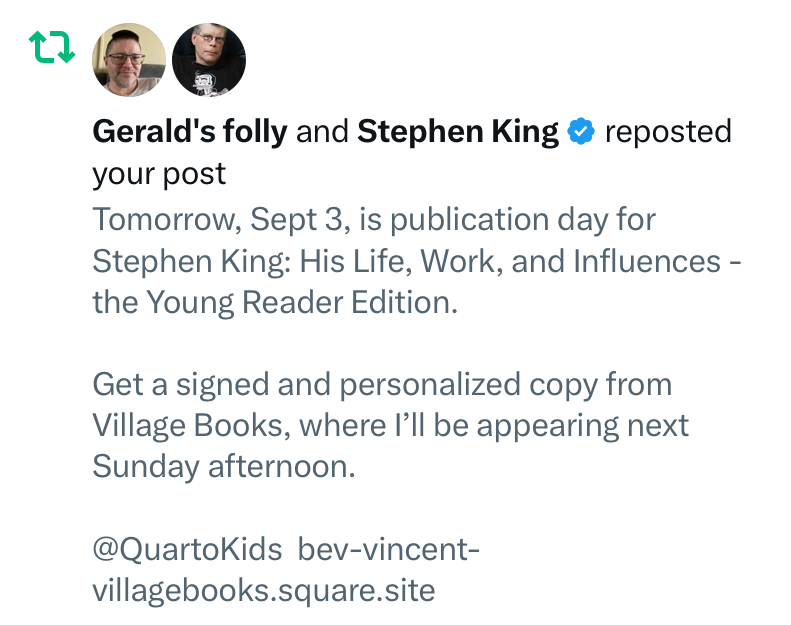A lot of people in our region didn’t take Hurricane Beryl seriously when it entered the Gulf of Mexico. Early indications were that it would go to Mexico (which it did) and keep going that way (which it did not). Then it looked like it would make landfall in Corpus Christi, 250 miles southwest of us. But it kept inching further east and it ultimately made a beeline for Houston and beyond, including us.
There was one early outer band on Sunday afternoon that made me sit up a little. However, we took only a few of the usual precautionary measures. I filled up one car’s gas tank. I bought a few groceries. The grocery store wasn’t the usual frenzy before a major storm, either—plenty of ice and water and toilet paper. I moved the things that might go airborne from the back yard to a more secure location. That’s it.
I heard the first rain at about 4:30 on Monday morning and it only got worse from there. My office is upstairs, and there was a steady pounding of not only rain but also of falling branches and—loudest of all—pinecones. When a pine branch loaded down with eight or ten of those things hits the roof, it makes a big bang, and we had a lot of those come down. The rain and wind (gusts up to 80 mph) were intense, among the worst I’ve seen. Previous hurricanes have passed over us during the night, so we’ve slept through the worst of them, mostly, but this was a daylight hours storm, and it was impressive. The power did its best to hang in there, but it gave up the ghost at around 10:30 or 11:00 am.
Although we do have battery-powered radios, I also have a hand-crank radio that was sent to me as part of a publicity kit for the TV series Colony a number of years ago and we kept it fully cranked while listening to classic rock and NPR. We hoped for news of when the power would be restored, but there was not much information about that. None, really.
Cell phone towers are powered by the grid, too, so when the power goes out (which it did for several million people in Houston and many thousands in our community), everything goes. You’re very lucky to be able to send a text. As for phone calls or internet…forget about it. In the afternoon, I walked to the nearby strip mall, about a mile away, doing the limbo under many fallen or falling trees and stepping around deep puddles, thinking I might be able to get some WiFi, but the power was out everywhere. I must have been in a sweet spot, though, because I was in the right place at the right time to get a call from our daughter and was able to reassure her that we were fine and for her to pass the message along to others.
We hung tight that night without A/C but the next morning I proposed we go to College Station, about 90 miles away, which hadn’t lost power. It was a tough call, leaving the house, but my boss had gone there earlier, so it seemed like a place where we could find a hotel and get some WiFi so we could work until things returned to normal. One of our pleasant surprises was the discovery that our garage door opener has a built-in battery. I was ready to MacGyver the thing open using our car and a cigarette lighter power box and an extension cord, but before I got to that, the opener started chirping because the battery was winding down. We were able to open the door, get the car out and close it again without any extra effort.
The drive was interesting. First, there was a very large tree down on one end of our street that blocked the entire road (it took them three days to remove it completely), which also, I later learned, made a dent in the roof of the owner’s car. When we reached the interstate, we had some cell phone coverage so were able to map out the best route, avoiding closures and flooded roadways.
Most of our trip was on an east/west road with plenty of traffic signals, none of which were working. There were many intersections of three or four lanes in each direction that we had to carefully navigate as if they were four-way stops. Most of the drivers knew how to sort this out, but there were a few close calls and we saw at least two fender benders from people who didn’t get the cues right. It was very slow going. The one or two places along the road that still had power were very busy because that meant the gas stations worked, so there were long queues on the side of the roadway. I was very glad I’d filled up on Sunday.
When we got to College Station, we found out there was no room in the inn. Any inn. A lot of people had the same idea as us. We were on the phone with one hotel making a reservation for their last room when someone else scooped it out from under us somehow. However, one helpful person knew of availability in a town 25 miles away, so we went there and got a room. There were plenty when we arrived, but a lot of people got the same message, so things filled up quickly thereafter.
The town was basically a crossroads between College Station and Austin and the motel was your typical roadside affair. It had two special amenities, though. One of the light switches turned on a series of strobing colored lights that lined the entire perimeter of the crown molding near the ceiling, creating a discotheque effect. I thought we got the “special” room because we were early, but it turns out all the rooms had that. When we went out to dinner later, my wife asked the waitress if there was anything fun to do in town and that stumped her, so we decided the disco lights were to make up for the lack of other entertainment. The other special feature was crickets. We only found a couple in our room, but the lobby was full of them and those suckers were loud!
I thought I was clever in thinking that I could call our house to find out if the power was on. If the answering machine picked up, I’d know we had juice. What I didn’t factor into the equation was the possibility that we could have power but no internet, which meant no phone and no answering machine. Fortunately, a couple of our neighbors let us know on Wednesday morning that the power was back, so we packed up and headed back home. The return trip was much smoother because most of the traffic signals were working. Not all, but most.
A lot of businesses in our community were still closed because they had to restock. All that food in freezers at restaurants and grocery stores had to go—a major economic impact for them. We’d cleared out our fridge and its freezer of perishables, transferring as much as we could to the deep freeze, which survived the two days without power. Our internet was still out though, and although we were promised a speedy return (9 pm Wednesday and then a less specific “within 24 hours” that remained the prediction for the next few days, it remained out until yesterday afternoon.
We gathered all the fallen limbs and made a big pile at the side of the road, just like everyone else who hadn’t decamped had already done. Remains to be seen when those will be picked up. All in all, though, we fared pretty well. Lost a bit of food, spent a night in a motel, that’s it. There are still people in Houston without power and some without running water (because the pressure dropped). Upwards of a dozen people killed, at least two by having trees fall on them while they were sitting comfortably in their houses, which to me is a dreadful way to go. Flood damage, etc. So we can’t complain for a brief inconvenience.
Without internet, we weren’t able to watch streaming platforms, so I hooked the DVD player back up and we watched some older movies: Fried Green Tomatoes (one of my wife’s favorites), Calendar Girls and The Girl with the Pearl Earring. We also watched the first episode of the Eccleston Doctor Who, which looked very dated, especially on DVD, compared to what they’re doing these days. Still, who doesn’t love Rose.
Currently reading: Memorials by Richard Chizmar and The Bang-Bang Sisters by Rio Youers.
The paperback edition of About that Snowy Evening is now available. The anthology has my story “The Heart that Fed.”
Also recently announced, my chapbook Lost (or Found) in Translation. Much like my previous chapbook for Brian Freeman’s supporters (“What’s In a Name?”), this one started life with a text message Brian sent me one day, this time asking my opinion on some of the absolutely wild translations of King’s book titles for the foreign editions. Prepare to learn more about the Stephen King books you’ve only read if you’re fluent in a bunch of languages, such as The Witch Girl, The Vampire Hour, City of Horrors, Hotel of Death, Nightmare in Room 16, Song of the End of the World, Exit to Hell, The Grim Reaper is Running, The Sphere of Darkness, Tom Gordon’s Fan Girl, Scary Car, The Legend of the Wind, The Shop that Sells Nightmares, You Can Fly When You Die, and so many others. To make this chapbook really special (and a great companion to the previous one), François Vaillancourt has contributed the chapbook’s cover, along with ten full-color interiors depicting what these King books would look like if he had been hired to illustrate the translated editions.

